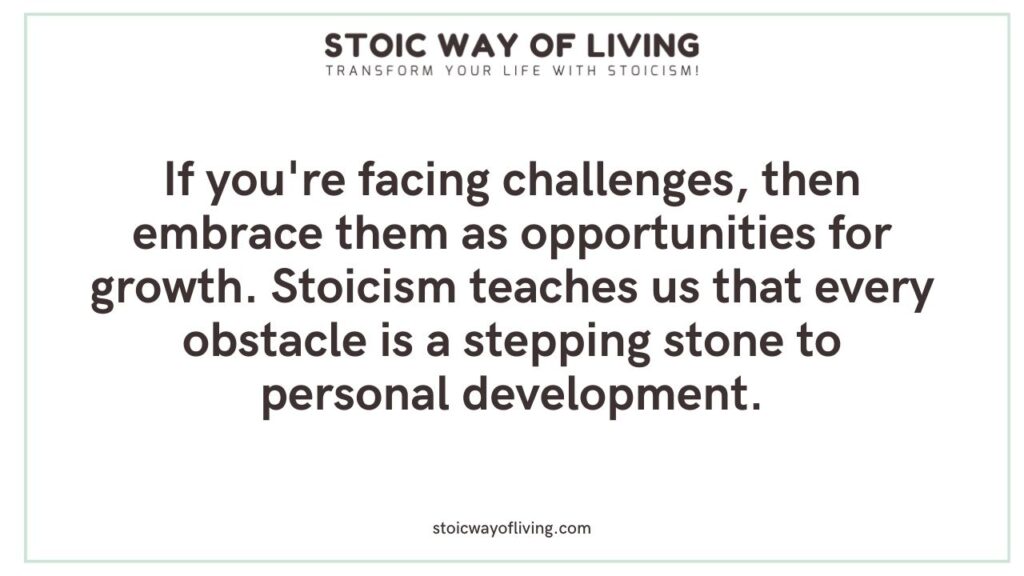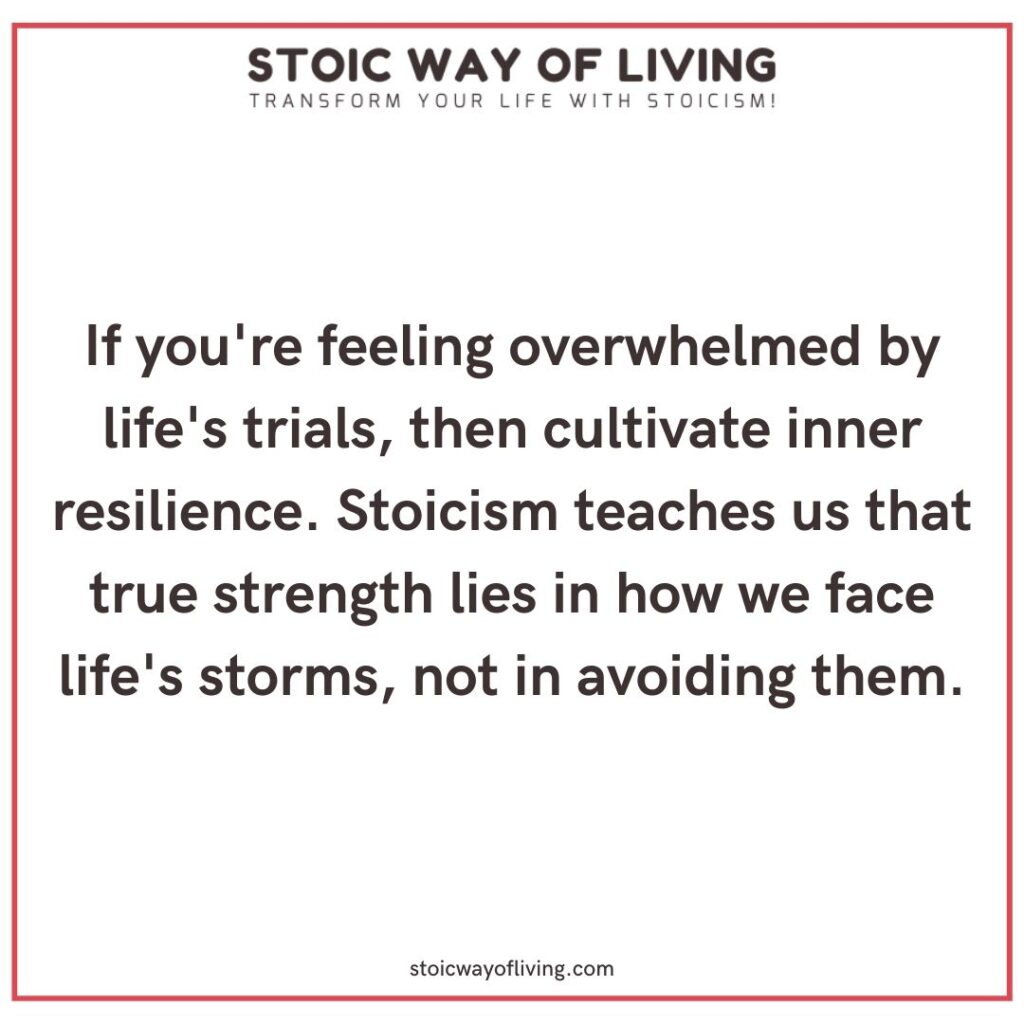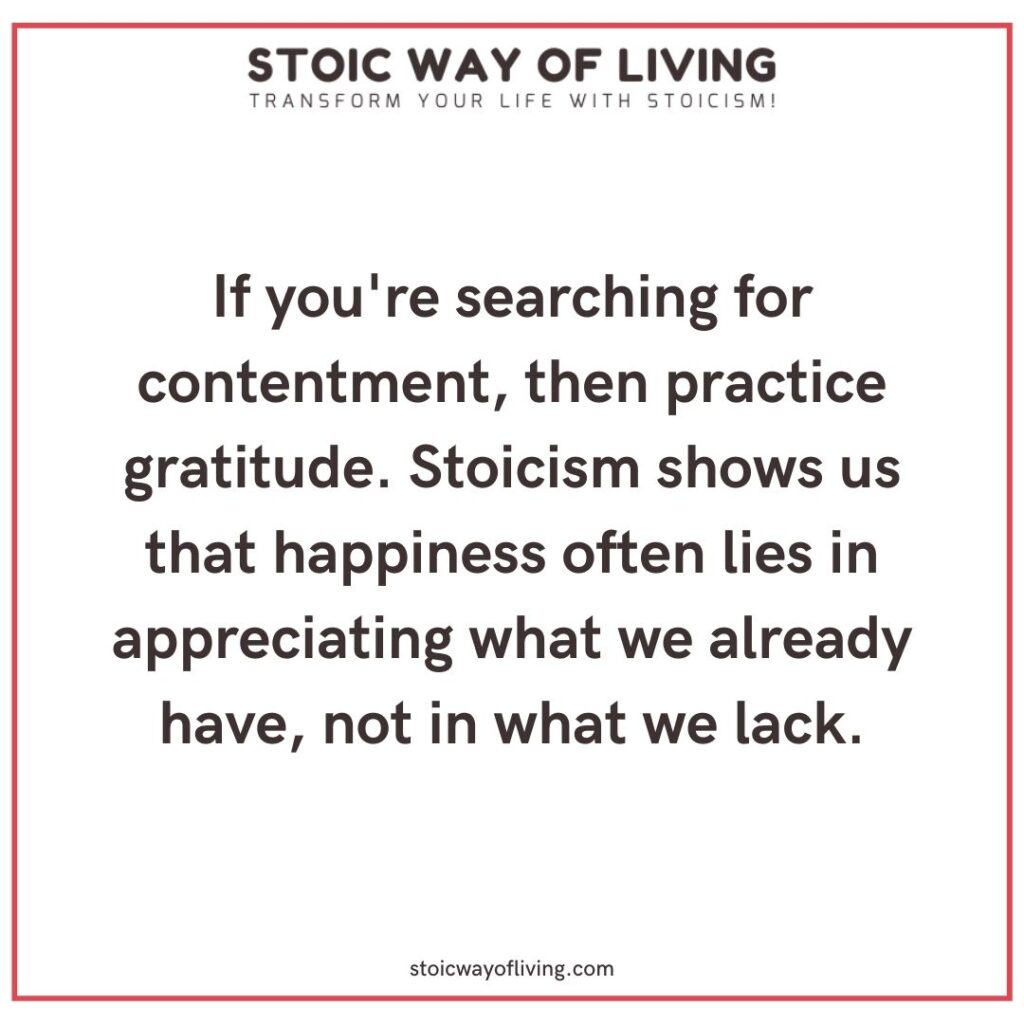Are Stoics able to be happy? Stoicism is an old school of thought that stresses self-control, inner calm, and accepting things that are out of our control.
Some people might think that this way of life goes against the idea of seeking happiness, but Stoics believe that the only way to be truly happy is to match our thoughts and actions with nature.
Here are some of the Stoics’ main ideas to see if they can help people find happiness. Let’s learn more about Stoicism together and see how the Stoic way of life can help us find happiness.
The Stoic Approach to Happiness
Stoicism is a way of thinking that started in ancient Greece and became popular in Rome. It gives a fresh look at life and happiness, stressing how important self-control, strength, and goodness are.
To sum up, Stoicism tells people to concentrate on what they can change and accept what they can’t. This piece will go into more detail about the main ideas of Stoicism and look at how they can help you live a happier, more fulfilling life.
One of the main ideas in stoicism is that people should follow certain rules in their search for happiness.
Stoicism is based on the idea that happiness is not something that depends on outside situations, but something that happens inside of you.
Stoics look at happiness in a way that is different from what most people think. Stoicism teaches that the only way to be truly happy is to be calm and comfortable inside, rather than seeking short-lived pleasures or success outside of yourself.
According to stoics, you can achieve true happiness that is unaffected by events in the outside world if you work on virtues like wisdom, courage, temperance, and justice.
People can be happy in the present moment and learn to be thankful for what they have by changing the way they think.
Understanding Happiness from a Stoic Perspective

Examining the Stoic Concept of Happiness
Stoics believe that happiness is not dependent on outside forces or material things. It is more of an inner state of mind that comes from living a good life and focusing on inner peace.
Stoics think that people can be happy if they act in a way that makes sense and follow the rules and laws of nature.
Prioritizing virtue can help you find a sense of purpose and satisfaction that goes beyond short-term pleasures or desires.
Interpreting Happiness as Inner Serenity
Stoicism says that inner peace is the key to true happiness, which comes from within.
Stoics think that outside events or circumstances can’t affect someone’s happiness unless that person makes them important.
Stoics can reach a state of inner peace that isn’t easily disturbed by changes in the outside world by developing a detached attitude and accepting that things we can’t change are just unimportant.
Virtue as the Path to Happiness
According to Stoic thought, virtue is the way to real happiness. The Stoics say that developing traits like wisdom, courage, moderation, and justice is very important because they lead to a good life and a sense of inner harmony.
By always acting in line with these virtues, people can handle life’s problems with grace and find satisfaction in following moral rules.
Stoics think that doing good things is something we can control and is, therefore, the key to lasting happiness.
The Stoic Dichotomy of Control

Differentiating between what is Within and Beyond our Control
The division of control is one of the main ideas behind Stoicism. It means telling the difference between things we can control and things we can’t. Stoics believe that our thoughts, attitudes, and decisions are the only things we can change about our lives.
Things like outside events, other people’s views, and even our own bodies are seen as things we can’t change. Stoics don’t try to control things that can’t be controlled because they know this difference. Instead, they focus on developing their inner values.
The Influence of External Factors on Happiness
Stoics agree that things outside of our control, like failure, loss, or trouble, can have an effect on our lives. But they stress that how we react to these events decides how happy we are.
Stoics say that we should be calm about what’s going on around us and change how we think and act to find inner peace and happiness even when things are hard.
People who are Stoic can stay happy no matter what by accepting that outside factors don’t affect them and learning how to deal with them with strength.
Developing Resilience through Acceptance
Stoics agree that things outside of our control, like failure, loss, or trouble, can have an effect on our lives. But they stress that how we react to these events decides how happy we are.
Stoics say that we should be calm about what’s going on around us and change how we think and act to find inner peace and happiness even when things are hard.
People who are Stoic can stay happy no matter what by accepting that outside factors don’t affect them and learning how to deal with them with strength.
The Role of Reason and Mindfulness

The Importance of Reason in Attaining Happiness
Reason is essential in Stoicism, helping us to make virtuous decisions and preserve an ideal mindset.
Stoics believe that by applying reason to events and aligning one’s actions with virtue, people can develop a sense of purpose and fulfillment.
Stoics can use reason to make educated decisions, think critically, and distance themselves from irrational emotions or impulsive acts that may jeopardize their quest for happiness.
Practicing Mindfulness to Cultivate Equanimity
Mindfulness is important in Stoic philosophy because it helps people to examine their own thoughts, feelings, and external surroundings without judgment or attachment.
Stoics practice mindfulness to increase their awareness of their inner condition and the environment around them. This increased awareness allows Stoics to stay present in the moment, cultivating a sense of stability that allows them to respond calmly and logically to any situation.
Mindfulness also improves one’s ability to detach from external circumstances, preventing them from controlling one’s enjoyment.
Harnessing Rationality to Overcome Negative Emotions
Stoics recognize that negative emotions such as anger, fear, or sadness can hinder one’s path to happiness. Therefore, they emphasize the importance of harnessing rationality to overcome these emotions and maintain inner balance.
Stoics can distance themselves from destructive emotions and cultivate a calm and rational mindset by using reason to reframe challenging situations or reevaluate their perspectives.
This rationality allows them to approach difficulties resiliently and find solutions or lessons within adversity.
Applying Stoic Principles in Daily Life

Embracing Impermanence and Accepting Change
Stoics encourage individuals to embrace the concept of impermanence and accept the inevitability of change.
By recognizing the transient nature of all things, Stoics can detach themselves from attachments to material possessions, relationships, or achievements.
This detachment fosters a sense of freedom, as Stoics are not reliant on external factors for their happiness. Instead, they find joy in the present moment and appreciate the ever-changing nature of life.
Developing Stoic Virtues: Wisdom, Courage, Temperance, and Justice
Stoicism places great importance on cultivating virtues as a means to achieve happiness. Wisdom, courage, temperance, and justice are the core virtues of Stoicism.
By developing these virtues daily, individuals can align their actions with reason and live according to their moral principles.
Wisdom enables Stoics to make sound judgments, courage allows them to face challenges with bravery, temperance fosters self-control and moderation, and justice guides them to treat others fairly and benevolently.
Cultivating Gratitude and Resilience
Stoics believe that cultivating gratitude is an essential aspect of finding happiness. Stoics can develop a mindset of abundance rather than scarcity by focusing on the positives in life and appreciating what one has.
Gratitude allows individuals to shift their attention away from what is lacking and instead appreciate the present moment and the blessings it brings.
Additionally, Stoics cultivate resilience by viewing obstacles as opportunities for growth and actively seeking ways to adapt and overcome challenges.
This resilience empowers individuals to navigate life’s hardships gracefully and maintain a sense of happiness.
Finding Happiness Through Self-Mastery

The Stoic Focus on Self-Improvement and Discipline
Stoicism strongly emphasizes self-improvement and discipline as essential components of happiness. Stoics believe individuals can cultivate inner virtues through self-mastery and align their actions with reason.
By practicing self-discipline, Stoics can become more aware of their thoughts, emotions, and behaviors, allowing them to make conscious choices that lead to personal growth and fulfillment.
Balancing Desire and Detachment
Stoics advocate for striking a balance between desires and detachment. While it is natural for humans to have desires and pursue goals, Stoics caution against becoming excessively attached to these desires or outcomes.
By cultivating a sense of detachment, Stoics free themselves from the anxiety or disappointment that may arise from unmet expectations.
They acknowledge that external circumstances are beyond their control and focus instead on aligning their actions with virtue and accepting whatever outcomes arise.
Emotional Detachment as a Path to Tranquility
Emotional detachment is central to the Stoic philosophy of tranquility. Stoics aim to detach themselves from irrational and destructive emotions, focusing instead on cultivating inner peace.
By recognizing that external events do not determine one’s happiness, Stoics develop emotional resilience and do not allow external circumstances to dictate their mind.
Emotional detachment allows individuals to remain calm, composed, and focused, even in adversity.
Navigating Adversity with Stoic Resilience

Turning Obstacles into Opportunities for Growth
Stoics view adversity as an opportunity for personal growth and self-improvement. Rather than allowing obstacles to discourage or defeat them, Stoics embrace challenges as valuable lessons and chances to develop resilience.
Stoics can reframe their mindset and find meaning and growth even in the most challenging situations by perceiving setbacks as stepping stones rather than roadblocks.
Using Stoic Techniques to Handle Adversity
Stoics employ practical techniques to handle adversity effectively. One such technique is the practice of negative visualization, where individuals imagine worst-case scenarios to prepare themselves for potential difficulties mentally.
By mentally rehearsing such scenarios, Stoics become better equipped to handle challenges with composure and clarity. Another technique is called “premeditatio malorum,” or the premeditation of evils, where individuals contemplate the worst possible outcome of a situation.
This exercise allows Stoics to detach themselves from attachments to specific outcomes and focus instead on finding a rational and productive response.
Developing a Positive Mindset in the Face of Challenges
Maintaining a positive mindset is crucial in Stoicism when faced with adversity. Stoics understand that challenges are inherent in life and approach them with a sense of acceptance and resilience.
By reframing negative situations and seeking growth opportunities, Stoics can maintain a positive outlook despite difficulties.
This positive mindset enables individuals to navigate adversity with grace, find lessons within setbacks, and grow stronger through their experiences.
Stoicism and Modern-day Happiness
Adapting Stoic Principles to the Modern World
Stoic principles can be adapted to the challenges and complexities of the modern world. While the ancient Stoics lived in a different era, the core values of reason, virtues, resilience, and acceptance remain relevant today.
By applying Stoic principles such as focusing on inner virtues, embracing impermanence, and cultivating gratitude, individuals can navigate the complexities of modern life with greater ease and find lasting happiness.
The Relevance of Stoicism in Achieving Happiness Today
In today’s fast-paced and often chaotic world, Stoicism offers a valuable perspective on finding happiness.
By emphasizing the power of our mind and perception, Stoicism teaches individuals to focus on what they can control and accept what they cannot.
This emphasis on inner serenity, virtues, and resilience allows individuals to find happiness amidst the challenges and uncertainties of contemporary life.
Practical Applications for Contemporary Individuals
Stoic principles can be practically applied in everyday life to cultivate happiness and well-being. Individuals can start by practicing mindfulness to develop awareness of their thoughts and emotions.
Applying reason and rationality to reframe negative situations or challenging emotions can also help individuals maintain a positive mindset.
Additionally, embracing the stoic virtues of wisdom, courage, temperance, and justice can guide individuals towards making virtuous choices and aligning their actions with their inner values.
By incorporating these principles into their daily lives, contemporary individuals can find fulfillment, purpose, and lasting happiness.
Conclusion
Stoicism offers a unique and relevant perspective on happiness in the modern world.
Individuals can cultivate resilience, navigate adversity, and find lasting happiness by focusing on inner serenity, developing virtues, and embracing the dichotomy of control.
Stoic principles can be adapted to meet the challenges of the contemporary world and provide practical guidance for individuals seeking contentment and fulfillment in their lives.
Embracing Stoicism can empower individuals to live with purpose, mindfulness, and gratitude, ultimately leading to a more meaningful and joyful existence.


